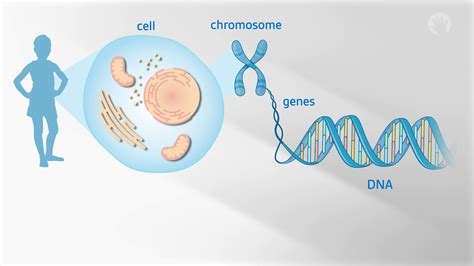Genetic counseling is a vital aspect of healthcare that is often overlooked or misunderstood. In this blog post, we will delve into the world of genetic counseling and explore its significance in today’s medical landscape. From understanding the role of geneticists to exploring the emotional and psychological aspects of genetic counseling, we will cover a wide range of topics to provide you with a comprehensive understanding of this field.
We will start by defining genetic counseling and highlighting its importance in identifying and managing genetic disorders. We will then discuss the role of geneticists and the common genetic disorders they address, along with the implications of these disorders. Additionally, we will walk you through the process of genetic counseling, including key considerations before genetic testing and the actual genetic counseling session. We will also touch upon the future of genetic counseling and its benefits and limitations.
By the end of this blog post, you will have gained valuable insight into genetic counseling and its impact on individuals and families affected by genetic disorders. Join us as we unravel the world of genetic counseling and its significance in the field of healthcare.
Table of Contents
What is genetic counseling?
Genetic counseling is a process of helping people understand and adapt to the medical, psychological, and familial implications of genetic contributions to disease. This specialized service involves expert advice and support for individuals and families who may be at risk for inherited conditions. This can include guidance on the impact of family history of genetic disorders and the possible risks for future generations. The aim of genetic counseling is to help people make informed decisions regarding their health and well-being.
Genetic counselors are healthcare professionals with specialized training in medical genetics and counseling. They provide personalized information based on each individual’s specific medical, genetic, and family history. This typically involves a detailed analysis of the family tree to identify patterns of inheritance and potential risks. Genetic counselors also interpret genetic testing results, discuss the likelihood of genetic conditions being passed on to children, and explore options for prevention and treatment.
Overall, genetic counseling serves as a valuable resource for individuals and families to gain a deeper understanding of their genetic predispositions and to empower them to make informed decisions about their health. It plays a crucial role in disease prevention, treatment planning, and family communication when it comes to genetic conditions.
As the field of genomics continues to advance, genetic counseling remains an integral part of the healthcare system, providing support and guidance for individuals navigating the complex landscape of genetic information and its implications.
The importance of genetic counseling
Genetic counseling is a vital aspect of healthcare that plays a crucial role in helping individuals and families understand the potential risks and implications of their genetic makeup. It provides an opportunity for individuals to make informed decisions about their health and well-being based on their genetic predispositions. Without the guidance and support of a genetic counselor, individuals may not have access to the necessary information needed to navigate the complexities of their genetic profiles.
By providing individuals with genetic counseling, healthcare professionals can empower them to take proactive steps towards managing and preventing potential health issues. This is particularly important for those with a family history of genetic disorders, as they can receive personalized recommendations and proactive measures to minimize their risk.
Furthermore, genetic counseling also plays a crucial role in reproductive health, as it enables individuals to make informed choices about family planning and the potential risks of passing on genetic disorders to their offspring. This can provide individuals with peace of mind and a sense of control over their reproductive decisions.
Overall, the importance of genetic counseling cannot be overstated, as it serves as a valuable resource for individuals and families to gain insights into their genetic predispositions, make informed decisions about their health, and take proactive measures to minimize potential risks.
Understanding the role of geneticists
Geneticists play a crucial role in the field of medical genetics, working to identify and treat genetic disorders. They are highly trained professionals who specialize in the study of genes and their roles in inheritance. By examining the genetic makeup of individuals, geneticists are able to diagnose genetic conditions and provide counseling to patients and their families.
One of the key responsibilities of geneticists is to analyze inherited traits and identify genetic disorders that may be passed down through generations. This involves conducting thorough examinations and tests to understand the genetic components of certain conditions. Through their expertise, geneticists are able to provide valuable insights into the risk of hereditary diseases and help patients make informed decisions about their health.
Geneticists also play a vital role in research and development, contributing to advancements in genetic testing and treatment options. Their work is instrumental in expanding our understanding of the human genome and how it impacts health and disease. By continuously exploring new technologies and methodologies, geneticists are at the forefront of cutting-edge discoveries in the field of genetics.
Furthermore, geneticists actively collaborate with healthcare professionals, including physicians, genetic counselors, and other specialists, to ensure comprehensive care for patients with genetic conditions. Their expertise and knowledge are essential in providing accurate diagnoses and developing personalized treatment plans, ultimately improving the quality of life for individuals affected by genetic disorders.
Common genetic disorders and their implications
Genetic disorders are conditions that are caused by abnormalities in an individual’s genetic makeup. These disorders can have wide-ranging implications for the affected individual, including physical, cognitive, and emotional challenges.
Common genetic disorders such as Down syndrome, cystic fibrosis, and sickle cell anemia have a significant impact on the lives of those affected, as well as their families and caregivers. These disorders often require ongoing medical management and may result in a decreased quality of life for the affected individual.
Additionally, the implications of genetic disorders extend beyond the physical symptoms. Many individuals with genetic disorders may also experience social and emotional challenges, such as stigmatization and discrimination. This can further complicate the management of these conditions and require additional support and resources.
It is important for individuals and families affected by genetic disorders to have access to comprehensive genetic counseling and support services. These services can help individuals understand the implications of their condition, make informed decisions about their health and well-being, and access the support they need to live fulfilling lives despite the challenges posed by their genetic disorder.
The process of genetic counseling
Genetic counseling is a complex process that involves a series of steps to help individuals understand and manage potential genetic risks. The first step in the process is usually a referral from a primary care provider or specialist who suspects that a patient may have a genetic condition. Once a referral is received, a genetic counselor will typically conduct a comprehensive evaluation to gather information about the patient’s personal and family medical history.
After the initial evaluation, the genetic counselor will work with the patient to identify and discuss potential genetic risks and implications. This often involves reviewing and explaining complex genetic test results, as well as providing information about the inheritance patterns of specific genetic conditions. The genetic counselor will also help the patient understand their options for managing or addressing any identified genetic risks, which may include undergoing additional testing, making lifestyle changes, or pursuing medical interventions.
In addition to providing information and support, genetic counseling also involves addressing the emotional and psychological aspects of genetic risk assessment. The genetic counselor will help the patient navigate the complex and often overwhelming emotions that can arise as a result of genetic testing and risk assessment, and provide resources and referrals for additional support if needed.
Ultimately, the process of genetic counseling aims to empower individuals to make informed decisions about their genetic health and well-being. By providing education, support, and guidance, genetic counselors play a crucial role in helping individuals understand and manage their genetic risks in a way that aligns with their personal values and goals.
Key considerations before genetic testing
Before embarking on genetic testing, it is important to consider several key factors that can impact the decision-making process and outcomes. Genetic testing is a highly informative and potentially life-changing process that can provide valuable insights into an individual’s genetic predispositions, but it also comes with various considerations that should be carefully weighed.
One of the key considerations before genetic testing is understanding the potential implications of the results. Genetic testing can reveal information about an individual’s risk for developing certain genetic disorders, and this knowledge can have a profound impact on an individual’s mental and emotional well-being. It is important to carefully consider how you will handle the results, whether they are positive, negative, or inconclusive, and to have support systems in place to cope with the potential outcomes.
Another important consideration is the potential impact of genetic testing on family members. Genetic test results can have implications for other family members, as they may also be at risk for the same genetic predispositions. It is important to carefully consider the potential impact on family dynamics and to have open and honest discussions with family members about the decision to undergo genetic testing.
Additionally, individuals should consider the potential implications of genetic testing for their future health care and insurability. Genetic test results can potentially impact an individual’s access to health insurance or affect their insurability in the future. It is important to carefully consider these potential implications and to understand the legal protections in place to prevent discrimination based on genetic information.
Exploring the genetic counseling session
During a genetic counseling session, individuals have the opportunity to learn about their potential risks for inherited conditions based on their family history, undergo genetic testing if appropriate, and receive emotional support and guidance as they make decisions about their healthcare. The counselor will take a detailed family health history and discuss the implications of any genetic information they may uncover.
One of the key aspects of the genetic counseling session is the communication of complex genetic information in a way that is understandable and empowering for the individual. The session provides a safe space for individuals to ask questions, express concerns, and discuss the potential impact of genetic testing results on their lives and the lives of their family members. It is also an opportunity for individuals to explore their feelings and concerns about their genetic risks and any potential lifestyle changes or medical interventions that might be recommended.
Throughout the counseling session, the genetic counselor will provide support and guidance, helping individuals to navigate the complex and often emotional aspects of genetic testing and risk assessment. They may also discuss a range of options for managing and monitoring genetic risks and provide information about available support resources and advocacy organizations.
Ultimately, the genetic counseling session is a collaborative and individualized process that aims to empower individuals to make informed decisions about their genetic health, while also addressing their emotional and psychological needs throughout the process.
Addressing psychological and emotional aspects
Genetic counseling involves not only the provision of information about the risk of developing genetic conditions, but also the emotional and psychological support for individuals and families dealing with the implications of genetic disorders. This aspect of genetic counseling is crucial in ensuring that individuals are able to process the information and make informed decisions about their health and future.
One important aspect of addressing psychological and emotional needs in genetic counseling is creating a safe and supportive environment for individuals to express their concerns and fears. Genetic counselors are trained to actively listen and provide empathy as individuals navigate the complex emotions surrounding genetic testing and potential diagnosis.
In addition, genetic counselors may also offer resources for mental health support and coping strategies to help individuals and families manage stress and anxiety related to genetic conditions. This may include referrals to therapeutic services and support groups to connect with others who are facing similar challenges.
Ultimately, addressing the psychological and emotional aspects of genetic counseling is essential for promoting overall well-being and resilience in individuals and families dealing with genetic conditions. By acknowledging and validating the emotional impact of genetic testing and diagnosis, genetic counselors play a key role in empowering individuals to make informed decisions and navigate the challenges of living with genetic disorders.
The future of genetic counseling
Genetic counseling has come a long way in the past few decades, but the future holds even more promising advancements. As technology continues to advance, genetic counselors will have access to more advanced tools and resources to help individuals and families understand their genetic makeup and make informed decisions about their health.
One exciting aspect of the future of genetic counseling is the potential for personalized medicine. With the ability to analyze an individual’s unique genetic profile, counselors will be able to provide more tailored and targeted recommendations for disease prevention, diagnosis, and treatment. This personalized approach has the potential to revolutionize healthcare and improve outcomes for patients.
Another area of growth in genetic counseling is the expansion of services to underserved communities. As awareness of genetic risk factors and the importance of genetic counseling continues to grow, efforts to make these services more accessible to all populations will be a key focus in the future. This includes reaching out to communities with limited access to healthcare and resources.
Additionally, the future of genetic counseling will likely see an increase in the use of telemedicine and digital health platforms. This will allow individuals to access genetic counseling services from the comfort of their own homes, breaking down geographic barriers and making it easier for more people to benefit from this important aspect of healthcare.
Benefits and limitations of genetic counseling
Genetic counseling has several benefits for individuals and families who may be at risk for genetic disorders. One of the key advantages is the opportunity to gain a better understanding of their genetic makeup and the potential risks they may face. This knowledge can help individuals make informed decisions about their healthcare, family planning, and lifestyle choices.
Genetic counseling also provides emotional support and guidance to help individuals cope with the psychological impact of a genetic diagnosis. By discussing their concerns and fears with a trained professional, patients can develop effective coping strategies and improve their overall mental well-being.
However, it is important to acknowledge the limitations of genetic counseling as well. One significant limitation is the inability to predict with certainty the onset or severity of certain genetic conditions. While genetic testing can provide valuable information, it is not always definitive, and there may be uncertainties about the potential outcomes and implications.
Additionally, the cost of genetic testing and counseling services can be a barrier for some individuals, limiting their access to these valuable resources. Furthermore, genetic counseling may not always be able to provide solutions or treatments for certain genetic conditions, leading to feelings of frustration or hopelessness for some patients.





